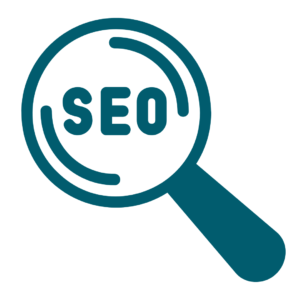What You Need to Know About SEO
SEO is an important part of digital marketing, involving a lot of knowledge, processes, and technology. It is also a time-consuming activity that requires ongoing efforts to achieve success.
Search engines like Google index the content on a website. Without these pages, search engines would have nothing to display when a user searches for a particular query. For more information, you can visit Rank Boss to proceed.

Keywords are a crucial part of any SEO strategy. They help search engines understand what your website is about and can make or break a site’s ability to rank well in search results. In addition, keywords can tell you a lot about your audience:
- What they’re searching for.
- How interested they are in a topic.
- Where they’re at in the buying cycle.
The best way to find keywords is to research using free online tools. These tools will provide a list of keywords most relevant to your business. It’s also good to speak with your audience and see their words when searching for your product or service.
Once you’ve found the right keywords, you must incorporate them into your content. The key is to do so in a natural way. Only put keywords where they belong, or you’ll risk looking spammy and losing credibility with Google. And don’t stuff your content with keywords either; your content should be useful, informative, and valuable to your target audience.
A common mistake is targeting keywords that are too popular. This will cause you to compete with many competitors, and it’s unlikely that your page will rank on the first page of the SERP. Instead, focus on long-tail keywords that have less competition but are still highly relevant to your business.
Keywords are important for SEO because they help search engines match search results to what users seek. The goal of search engines is to present the most relevant information possible. If you want to improve your chances of ranking on the first page, using relevant keywords in your content is important.
Searchers who use informational keywords are in the awareness stage of the buyer’s journey, and they’re looking for general information about a specific topic. For example, if someone searches “what is an algorithm,” the search engine will return results that accurately define the term. This search type is important for people who need to learn about a new subject quickly and accurately.
Metadata is information that describes other data. It is often hidden in the coding of web pages, and it helps search engines understand what a page is about. Using metadata can help your website rank higher in search engine results pages (SERPs) and attract more visitors.
There are several types of metadata, and it is important to use them correctly. The most common include the title tag, description tag, and keywords tag. These are all found in the head> section of your web page’s HTML code. Title tags are the most important, as they appear in search engine results pages and may be the first thing a potential customer sees. They should be a concise, descriptive title that accurately reflects the content of your page.
The description tag is also very important, briefly summarizing your page’s content. It should be a maximum of 160 characters, and it can help search engines identify the subject matter of your page. It can also influence click-through rates and the number of people who view your SERP listing and then click on it.
The keywords tag is used to list a set of relevant keywords that are related to your page’s topic. Search engines use these keywords to help them find and display the most relevant results for a user’s query. In addition, they allow the search engine to distinguish your page from competing pages, making it more likely to be displayed in the top results.
Metadata is an essential part of SEO, and it’s important to take the time to write compelling titles and descriptions for each page on your website. However, always write for your audience rather than search engines. Otherwise, your page titles and descriptions may sound overly promotional or “spammy,” which can be a turnoff for potential customers.
On-page optimization refers to optimizing web page elements that the website owner controls. This includes the content of a web page and its HTML source code, as well as technical issues such as site speed. These elements are often invisible to visitors but are used by search engines to evaluate a web page’s relevance and rank it in search engine result pages (SERPs).
Keyword research is the first step of on-page SEO. It’s finding keywords that match your audience’s search intent. Using this information to create content can boost your rankings in organic searches and drive more traffic to your site.
Once you’ve identified your target keywords, use them throughout your website content. Ideally, you should include your keyword in each page’s title tag, meta description, and H1 tags. Title tags are the first thing that search engines see when displaying results, and they influence the way your page ranks in SERPs. Make sure your titles are descriptive, relevant, and concise.
The meta description is a short paragraph that describes your web page’s content. An important on-page SEO factor affecting click-through rates (CTR) and search engine rankings. Meta descriptions should include your keyword and be informative to entice users to visit your web page.
Another on-page SEO best practice is to add keyword-rich alt text to your images. This helps search engines understand what your picture is about and is useful for visually impaired visitors who rely on screen readers.
Finally, internal links are an important on-page SEO best practice. They help Google crawl your pages, determine their relevance, and improve user experience by linking to related pages. Ideally, use descriptive anchor text when creating internal links and avoid duplicate content.
Getting on-page SEO right is crucial to your online success. While it may take time, the results are worth the effort. With SE Ranking, you can manage on-page optimization projects in one place and see their impact on your search engine rankings in real-time.
Link building is a crucial element of SEO, and getting quality links to your website’s pages can help you rank higher in search results. But it’s important to remember that link-building is not a magic bullet. It would help if you focused on other SEO techniques, including content marketing, to achieve your goals.
The key to successful link building is creating high-quality content valuable to your audience and referring websites. This content may include blog posts, social media updates, videos, etc. In order to ensure that your content is relevant and useful, you should conduct keyword research and competitor research to discover the topics that are most popular with your target audience. Once you’ve identified a few keywords, you can use them in your content. This will help your content attract organic links from reputable sources and improve your search engine optimization.
Another way to increase the number of quality links is by reaching out to potential partners. This can be done through email or by using social media. In addition, you can also perform competitor analysis to see what types of links attract the highest search engine rankings. This will help you discover how to get similar links and outrank your competitors.
However, it’s important to note that if you try to manipulate the process of building links by using tactics like buying or selling links, Google will punish your site for it. While it’s still possible to use some of these methods to build links, you must be careful not to go overboard and risk being penalized by Google.
In the past, many SEOs focused on generating backlinks with little thought about how these links would impact their overall performance. While the importance of links has diminished over time, they’re still a critical factor in search engine algorithms. This is why properly knowing how to implement link-building strategies, including white hat techniques, is vital. Avoiding bad links can build a strong foundation for your SEO campaign and achieve long-term success.

